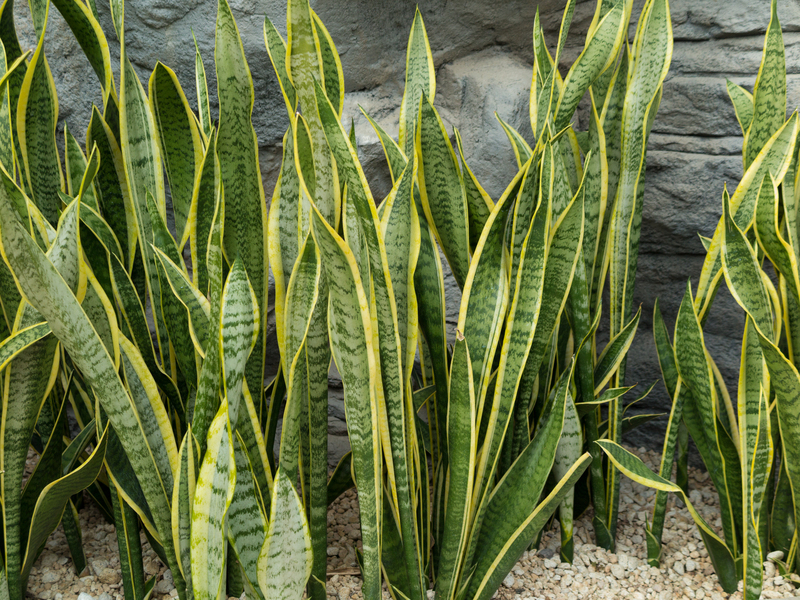Discover Mindful Outdoor Living with Zen Garden Creativity
Posted on 04/09/2025
Discover Mindful Outdoor Living with Zen Garden Creativity
Mindful outdoor living has become an essential trend for those seeking balance, relaxation, and inspiration in the modern world. At the heart of this lifestyle lies the timeless beauty of Zen garden creativity. If you're yearning to transform your outdoor space into an oasis of tranquility, embracing the philosophy and artistic inspiration of Zen gardens is the ultimate way to achieve a harmonious connection between nature and inner peace.
What is Zen Garden Creativity?
Originating from ancient Japanese culture, Zen gardens are more than just visually stunning landscapes--they are expressions of mindfulness, simplicity, and meditative practice. Traditionally known as karesansui or dry landscape gardens, these carefully orchestrated spaces use natural elements like rocks, gravel, sand, and minimalistic plantings to evoke a sense of calm and contemplation.
Zen garden creativity is the art of reinterpreting these classic principles and adapting them to your own outdoor living environment. Whether you have a vast backyard or a compact urban balcony, the meditative qualities of a Zen garden can be tailored to fit your unique space and lifestyle.

The Benefits of Mindful Outdoor Living
Integrating a Zen-inspired garden into your outdoor living area can offer a variety of advantages beyond just visual enhancement:
- Stress Reduction: The act of arranging stones, raking gravel, or tending to plants provides mindful focus, helping to quiet the mind and alleviate tension.
- Enhanced Well-being: Being in nature and cultivating beauty fosters a sense of fulfillment, grounding, and happiness.
- Creative Expression: Designing a Zen garden encourages artistic freedom and personal interpretation, giving you an outlet for expression.
- Increased Property Value: A thoughtfully curated outdoor sanctuary adds to your home's aesthetic and market appeal.
- Sustainable Living: Minimalist Zen gardens often require less water and maintenance compared to traditional lawns.
Core Elements of Zen Garden Design
To embrace Zen garden creativity within your mindful outdoor living space, a few signature features are essential. Understanding these core components will help guide your design and create an authentic, harmonious atmosphere.
1. Stones and Rocks
In Zen gardens, stones symbolize mountains, islands, or creatures, and are thoughtfully arranged to create natural yet intentional groupings. Each rock's placement should feel purposeful, enhancing both the aesthetic and meditative qualities of the garden.
2. Sand and Gravel
Sand or gravel serves as the "ocean" or "river." Carefully raked into swirling or linear patterns, it represents the flow of water--inviting observers to experience calm and impermanence. Raking itself becomes a meditative ritual, bringing the mind into the present moment.
3. Minimalist Plantings
Uncluttered simplicity is key. Instead of elaborate flower beds, use evergreens, moss, bamboo, or small shrubs to introduce natural color and texture while maintaining a peaceful, low-maintenance environment.
4. Water Features
Though traditional Zen gardens are often "dry," integrating a small water basin or bamboo fountain can add auditory tranquility and symbolic purity to your garden setting.
5. Pathways and Boundaries
Paths of stepping stones or gravel guide you through the garden, inviting slow, mindful movement. Low fences, hedges, or shoji-style screens establish boundaries, nurturing a feeling of seclusion and sanctuary.
How to Start Your Mindful Zen Garden Project
The journey toward mindful outdoor living with Zen garden creativity is both inspiring and accessible. Here's how to begin:
Step 1: Choose Your Space
- Assess your available area: Zen gardens can be as simple as a tabletop arrangement or as elaborate as an expansive landscape.
- Consider sunlight and drainage: Pick a location with suitable light for your chosen plants and good water drainage.
Step 2: Plan Your Layout
- Sketch a simple design: Identify places for major elements: stone groupings, gravel areas, plantings, and any water features.
- Apply the rule of odd numbers: In Japanese aesthetics, odd-numbered clusters (such as three stones) feel more natural and harmonious.
Step 3: Gather Materials
- Stones: Seek out rocks of varying sizes and shapes for interest.
- Gravel or sand: Choose fine gravel or white sand for raking patterns.
- Minimalist plants: Select evergreens, mosses, or dwarf varieties that fit your climate and the garden's scale.
- Optional features: Consider a bamboo water fountain, pagoda lantern, or simple bench for additional Zen character.
Step 4: Create and Maintain Your Zen Garden
- Arrange stones mindfully: Start with the largest rocks as focal points, working outward with supporting stones and smaller elements.
- Spread and rake gravel: Establish desired patterns--waves, ripples, or straight lines--to represent water and movement.
- Plant thoughtfully: Integrate greenery with restraint for visual balance and ease of care.
- Maintain regularly: Rake gravel, prune plants, and reflect on the space to keep it fresh, clean, and inspiring.
Creative Zen Garden Ideas for Every Home
Zen garden principles adapt beautifully to both traditional and modern landscapes. Here are several creative suggestions for infusing mindful outdoor living into any setting:
- Balcony Zen Retreat: Use a wide, shallow container, pebbles, and a single stone with air plants for a mini urban escape.
- Zen Pathway: Replace a typical walkway with stepping stones flanked by moss and raked gravel, creating a meditative journey from street to door.
- Corner Meditation Zone: Convert an overlooked spot with a circle of gravel, a boulder, and a bamboo bench for quiet reflection.
- Contemporary Water Feature: Pair a sleek granite basin with river rocks and minimalist plantings for a modern Zen statement.
- Kids' Zen Sandbox: Build mindfulness in children by offering them an "outdoor sandbox," complete with rakes, pebbles, and small stones for creative play.
Mindfulness Practices in Your Zen Garden
Integrating mindful outdoor living into your daily routine deepens the connection between your Zen garden and your well-being. Consider these practices:
- Walking Meditation: Slowly traverse your garden's pathways, focusing on each step and the sensations underfoot.
- Raking Meditation: Let the rhythmic motion of raking gravel or sand calm your mind and heighten your awareness.
- Sitting Meditation: Find a comfortable spot to sit with a straight back, gaze softly upon the garden, and observe your breath and thoughts.
- Journaling: Keep a notebook in your outdoor space to jot reflections, sketches, or inspirations during peaceful moments.
- Creative Arrangements: Periodically rearrange stones or add symbolic elements that reflect your current intentions or emotions.
How Zen Garden Principles Foster Sustainable Living
As sustainability becomes essential for modern lifestyles, Zen garden creativity aligns beautifully with eco-conscious values:
- Minimal water usage: Gravel, sand, and carefully chosen native plants require minimal irrigation compared to lawns or flowerbeds.
- Low maintenance: The simple structure of Zen gardens means less time spent on mowing, fertilizing, or seasonal replanting.
- Natural materials: Using untreated stones, wood, and bamboo reduces reliance on synthetic landscaping materials.
- Wildlife friendly: Moss, evergreens, and water features can support beneficial insects, birds, and pollinators.
Zen Garden Creativity and Modern Outdoor Decor
Today's outdoor living spaces can blend Zen garden inspirations with modern aesthetics for a uniquely personal refuge. Some stylish ideas include:
- Minimalist patio furniture: Opt for clean-lined, natural wood or bamboo furnishings that enhance rather than compete with the garden's simplicity.
- Soft, ambient lighting: Use paper lanterns, hidden LED strips, or stone lanterns for gentle illumination after sunset.
- Outdoor art and sculpture: Choose abstract, weather-resistant pieces in stone or metal to echo traditional Zen motifs.
- Japanese-style fences or screens: Incorporate latticed panels or shoji screens to define peaceful garden boundaries.
- Water elements: Add a modern water wall or simple bubbling fountain to bring soothing sounds into your outdoor sanctuary.

Tips for Cultivating Mindfulness and Creativity Outdoors
Cultivating mindful outdoor living through Zen garden design is not just about geometry or minimalism--it's about forming a consistent practice that refreshes mind, body, and soul. Here are some additional tips:
- Engage all senses: Select plants for their scent, textures for tactile interest, and features like water for sound.
- Involve your family: Engage children and partners in planning, building, and maintaining your Zen garden for shared moments of peace.
- Let go of perfection: Zen celebrates impermanence and wabi-sabi--the beauty of things that are imperfect, impermanent, or incomplete.
- Welcome the seasons: Allow your garden to respond to nature's changes, observing shifts in light, weather, and growth.
- Commit to regular reflection: Spend time in your garden daily, even for just a few minutes, to center yourself and recharge.
Conclusion: Embrace Mindful Outdoor Living with Zen Garden Creativity
Zen garden creativity invites you to slow down, observe, and interact with your outdoor space in meaningful ways. Through the deliberate arrangement of natural elements, the cultivation of minimalist beauty, and the practice of daily mindfulness, you can create an outdoor haven that nurtures your spirit--even in the heart of a bustling city.
Let your outdoor living area become your sanctuary, your creative canvas, and your gateway to a more mindful and harmonious life.
FAQs About Mindful Outdoor Living and Zen Gardens
- Do Zen gardens require a lot of maintenance?
Not at all. Zen gardens are celebrated for their low-maintenance nature, requiring occasional raking, stone adjustment, and plant pruning. - Can I create a Zen garden in a small space?
Absolutely. Even a container or tabletop can become a mini Zen oasis with carefully chosen stones and sand or gravel. - What if I don't have a green thumb?
No worries! Zen gardens typically feature hardy, low-maintenance plants--or no plants at all--making them perfect for beginners. - How can I involve kids in Zen gardening?
Invite children to help choose stones, rake sand, or create their own small Zen garden, fostering creativity and calm in the process.
Ready to start your journey toward mindful outdoor living with Zen garden creativity? Transform your outdoor space today, and experience the serene pleasures of a Zen-inspired sanctuary just outside your door.

